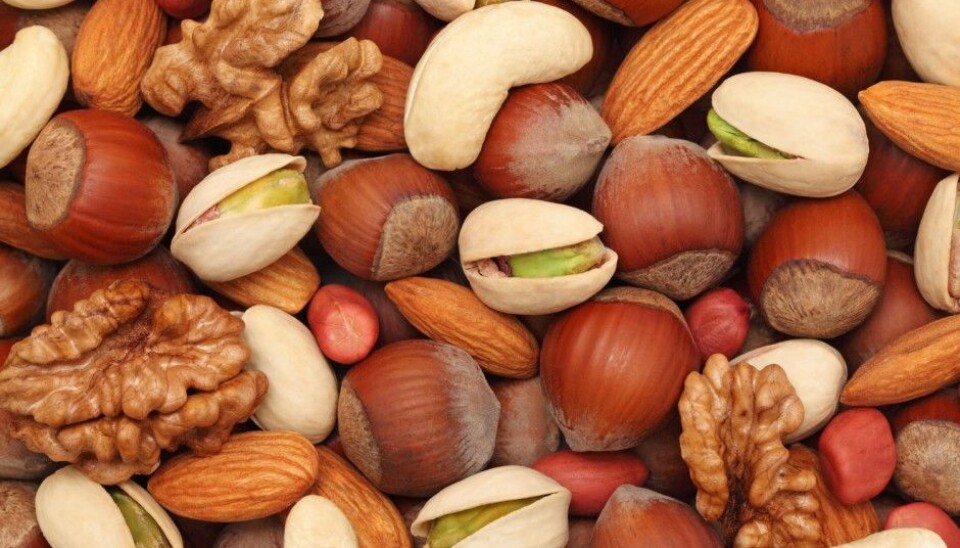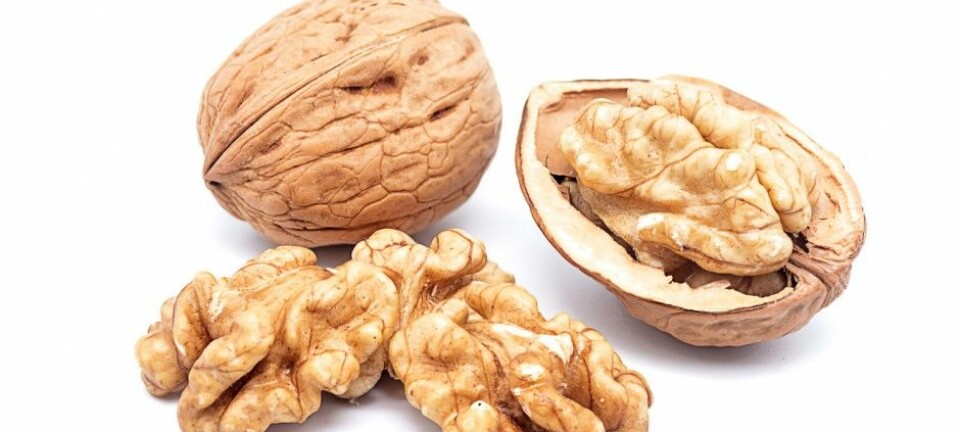
Nut consumers live longer lives
People who eat a handful of nuts every day have a lower risk of cardiovascular disease and cancer, and they are less likely to die from respiratory diseases, diabetes and infections, according to a new study.
In vernacular English, nuts are associated with mental illness, enigmas and male gonads. But how about good health?
Quantities of research have shown that nut-eaters run lower risks of cardiovascular diseases.
But the medical profession has been uncertain about how nuts affect other diseases, such as cancer or the general risk of premature death.
Norwegian and British researchers have now conducted a meta-analysis of numerous studies on the theme.
They conclude that people who daily eat a handful of nuts run a lower risk of premature death. Nut eaters are less likely to get cardiovascular diseases and cancer and seem to run lower risks of dying from diabetes, respiratory diseases and infections.
“(…) we estimated that a total of 4.4 million deaths may be attributable to a nut intake of less than 20 grams per day in 2013 in the regions covered,” write the researchers in an article published in the highly respected scientific journal BMC Medicine.
This is on the condition, however, that the nuts rather than other lifestyle factors are what cause the beneficial effects. There are still questions about that.
Lower risk of disease and death
Researcher Dagfinn Aune and his colleagues at the Norwegian University of Science and Technology (NTNU) and Imperial College London are behind the study. They have summed up the findings of 29 papers based on 20 studies in which scientists registered people’s diets and lifestyles and followed up their health conditions over periods of time.
Using this material, Aune and colleagues have seen that nut consumption links to health.
Those who eat a handful of nuts – defined as one ounce, or 28 grams – a day had a 21 percent lower risk of cardiovascular disease and a 15 percent lower risk of cancer. Their risk of premature death was lowered by 22 percent.
Just a little
No large intake was needed for the effect. Actually, 15-20 grams of nuts were enough. The risks of prematurely suffering these common causes of death did not decrease significantly by eating more nuts.
In general, the benign results could be obtained from the botanically defined legumes peanuts and the seeds Brazil nuts – as well as the tree nuts: walnuts, almonds, hazelnuts, cashews, pistachios, and pecans. Even eating peanut butter could be linked to lower risks of disease and death.
However, only tree nut consumption could be linked with a lower risk of cancer.
What leads to what?
Although population studies such as these show that elements of diets connect with health, they cannot explain how this actually works.
Put more clearly – while nuts lower the risks of disease, research has also shown that people who eat lots of nuts tend to have healthier lifestyles than people who don’t. Was the lifestyle itself, or combinations of other aspects of it than grams of nuts, tipping the scales in favour of these persons?
Researchers try to make allowances for these factors when interpreting their results, but this usually involves dealing statistically with some unknown factors. Scientists cannot control what people eat for years on end. In large cohorts with data accumulated through self-reporting, the subjects could be intentionally or unintentionally providing incorrect information.
Despite that, there are still strong indications that the nuts themselves are causing the beneficial effects.
Smart to eat nuts
Nuts are known to be good sources of polyunsaturated fats, proteins, dietary fibre, vitamin E, magnesium, potassium and antioxidants, elements and substances that are seen to lower the risk of cardiovascular diseases.
Experiments have also been conducted where one group of participants eat nuts while others do not. Then a comparison their bodies is made.
These results showed that an intake of nuts can reduce cholesterol and triglyceride levels in the blood, writes Aune in an e-mail to ScienceNordic’s Norwegian partner, forskning.no.
“There are also some studies showing a reduced insulin resistance and better arterial functionality, so a lower risk of cardiovascular disease is likely,” he writes.
Less is known regarding nut consumption and cancer. But some studies using animals show that nuts in a diet can reduce infections and damage to cellular DNA, which could have an impact on cancer prevention.
The following conclusion was made in an editorial in the American Journal of Clinical Nutrition in 2014:
“With regard to actions, given the extant data, it seems at least as plausible as not that nuts confer overall health benefits. Therefore, for those who can afford and are not allergic to nuts, regularly consuming them in reasonable quantities seems a wise decision.”
--------------------------------------
Read the Norwegian version of this article at forskning.no
Translated by: Glenn Ostling
































